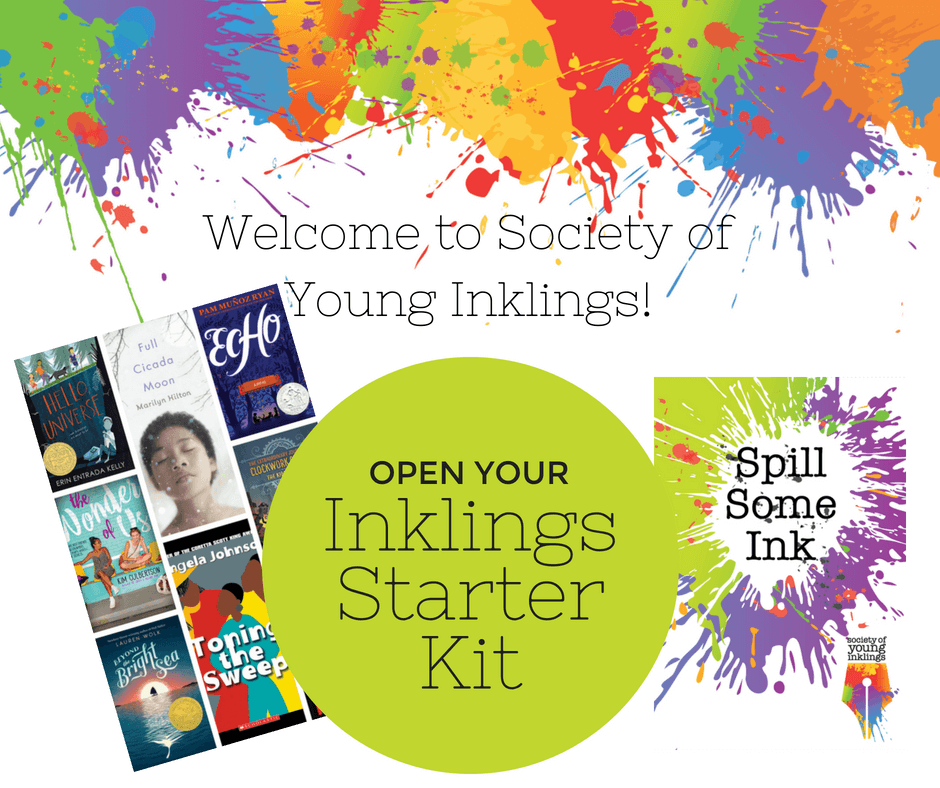For the August issue of Inksplat, we talk with Betty Culley, author of Three Things I Know Are True and the upcoming August release, Down to Earth. Betty reminds us how important a writing community is and why being in one helps us grow as writers. She shares, “It’s so wonderful that you have each other as support. Even if you don’t share your writing, you’re sharing your enthusiasm for writing, and learning from each other.” If you’re looking for a writing community, check out the Drafting Workshop! We’d love to have you there.
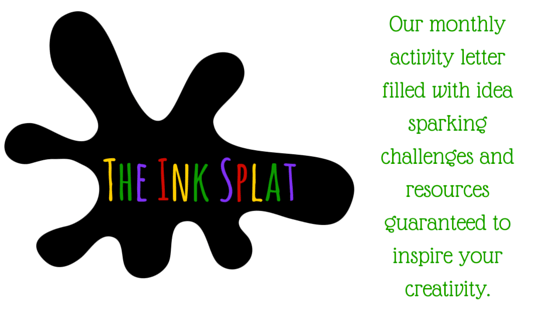
Writing Challenge
This month’s writing challenge comes from Betty and is all about point of view:
Point of view can really change a book. My first draft of Down to Earth was in third person, and I later changed it to first person. My second middle grade novelThe Natural Genius of Ants, which comes out in 2022, was first written from two different viewpoints, and then it became just one character’s point of view.”
Take the first page or the first section of whatever you are currently working on, and try changing up the point of view. Add another character’s viewpoint or take one away, switch from past to present tense, or switch from first to third person or vice versa. See how this affects your own view or perspective of the project.
Or, if you like verse novels, and think your work-in-progress might be suited to the form, give it a try. My verse novel Three Things I Know Are True started as prose, until a writing group friend suggested that I try it in verse!
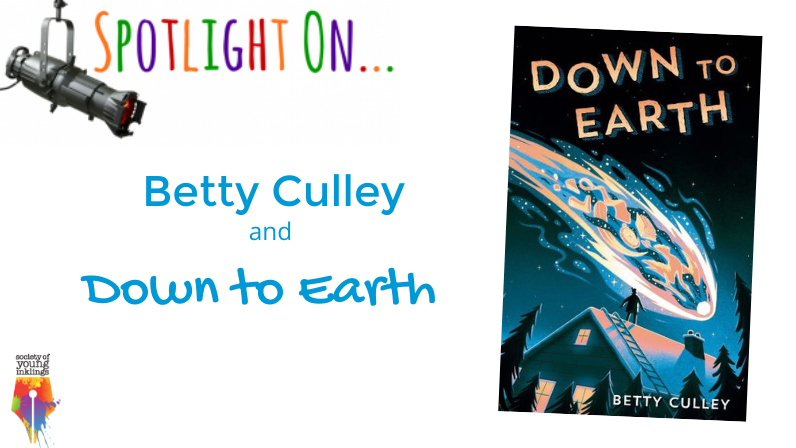
An Interview with Betty Culley
Do you remember when you first discovered that you wanted to be a writer?
I always loved to read, and I always liked to write. I have a picture of me when I was ten, and I am holding a notebook. I had read the book Harriet the Spy when I was probably about eight or nine. Harriet was the first character in a book that I read who said she was a writer, and you read things in her notebook that she wrote. For me, a light bulb went off that this is what I want to do: I want to be a writer. And I’m going to have notebooks, and I’m going to write down what I see in the world and what I think and what I feel.
How were you inspired to write each of your two books?
I worked as a nurse for kids for about ten years, children from as young as one year old to teenagers, in their homes. I stayed for four hours to eight hours a day, and I became part of the family. And so I saw what it was like, not just for the child themselves, but for the family, for the siblings of the sick or injured child, and everybody around them. So that was part of my real inspiration for Three Things I Know Are True, which is about a fifteen-year-old girl who helps to take care of her brother after he accidentally shoots himself with a gun. And I live near the Kennebec River, so that kind of the river wove into the story as well.
Down to Earth is about the changes a ten-year-old boy experiences when a meteorite falls to earth in his family’s hayfield. I had always been interested in rocks in space. Since I grew up outside New York City, they took us on a field trip to the Museum of Natural History. I have a picture of this meteorite, and it’s huge. I also have this book that I read with my children that explains how giant the universe is. So I thought, what if a meteorite from our solar system falls? It can happen anywhere to anyone.
Do you feel that the verse-novel format, like you use in Three Things I Know Are True, makes it easier to write about more difficult subject matter?
For my book, it makes the story very direct, more immediate. Poetry pierces to the heart of an emotion. When I first started writing Three Things I Know Are True, I brought the first ten or fifteen pages to my writing group, and one of my writing friends said, “You know, your writing tends to be really sparse and poetic, why don’t you try writing in verse?” And I hadn’t thought of that, but I switched right then. And it was like it was meant to be that way. When I’m trying to really get into emotions, it’s a good format for me.
Tell us a little bit about the hardest part of writing for you?
I’ve written my whole life, and I’ve gotten discouraged and given up and thought I’m not good enough, that there’s some magical thing that I just can’t figure out. So I would write and then put it aside. And then I joined a group, and it’s so wonderful that you have each other as support. Even if you don’t share your writing, you’re sharing your enthusiasm for writing, and learning from each other. We brought pages and met once a month, so it made me accountable and it gave me other people’s eyes on my work. When I didn’t share my writing for many years, I didn’t have the opportunity to get feedback, even good feedback that would have told me, “Hey, that’s really good, keep going.”
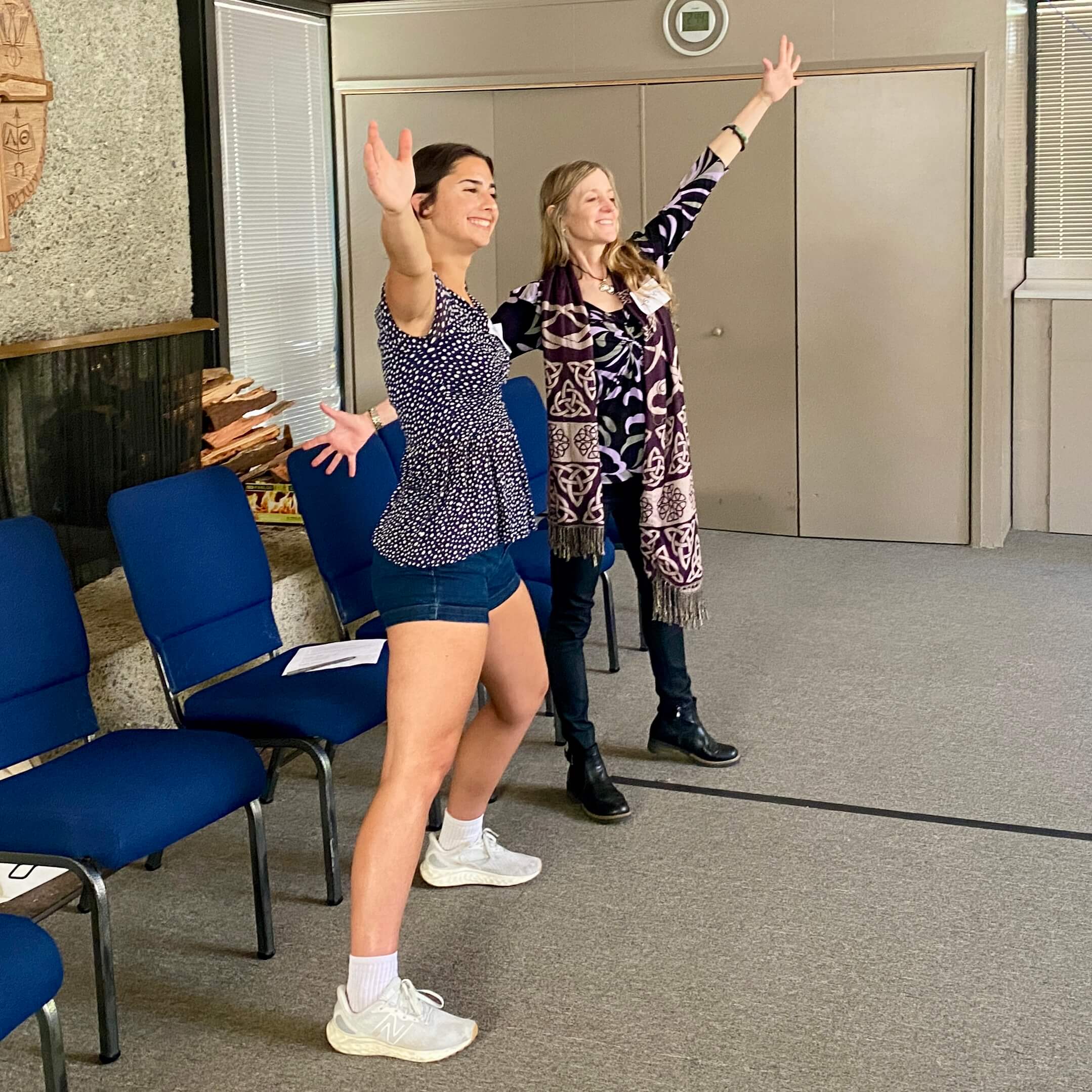
INKLINGS CONNECT
THE WAY WORDS MOVE US
Join us September 13 and 14 in Portola Valley, CA for our 2nd Annual Inklings Conference!
Featuring a keynote with author Joanna Ho, this conference includes creative writing breakout sessions in our beautiful redwood grove, workshops on using improv to step into a character’s shoes, experiments in word play, a storytelling workshop, and reflective writing to tap into your unique voice.
Keep your creativity flowing with our upcoming events!
JULY
- 7/22-25: Make Your Scenes Sparkle Summer Camp
- 7/22: Author Interview with JR Potter (Inklings Membership only)
AUGUST
- 8/6: Author Interview with John Hendrix (Inklings Membership only)
- 8/15: Teen Spilling Ink Writing Workshop (Inklings Membership only)
- 8/26: All Ages Spilling Ink Writing Workshop (Inklings Membership only)
SEPTEMBER
- 9/3: All Ages Spilling Ink Writing Workshop (Inklings Membership only)
- 9/8: 2024 Inklings Book Release Party (Online)
- 9/13-14: The Way Words Move Us Writing Conference in Portola Valley, CA
- 9/19: Teen Spilling Ink Writing Workshop (Inklings Membership only)
- 9/23: Author Interview with Roshani Chokshi (Inklings Membership only)
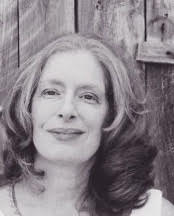
We appreciate Betty Culley for sharing with us! You can read more about Betty and her work at https://www.bettyculley.com/
Betty Culley’s debut novel in verse Three Things I Know I True, was a Kids’ Indie Next List Top Ten Pick, an ALA-YALSA Best Fiction for Young Adults Nominee, an ALA-YALSA Quick Pick, and a Junior Library Guild selection. Her first middle-grade novel Down to Earth, is inspired by her fascination with meteorites, voyagers from another place and time. She’s an RN who worked as an obstetrics nurse and as a pediatric home hospice nurse. She lives in central Maine, where the rivers run through the small towns.
SPARK YOUR CREATIVITY!
Subscribe to our monthly Ink Splat for an exclusive author interview, a writing challenge, and other fun (and free!) goodies, curated especially for youth writers.
As a bonus gift, we’ll send you an Inklings Starter Kit packed with creativity-sparking fun.
